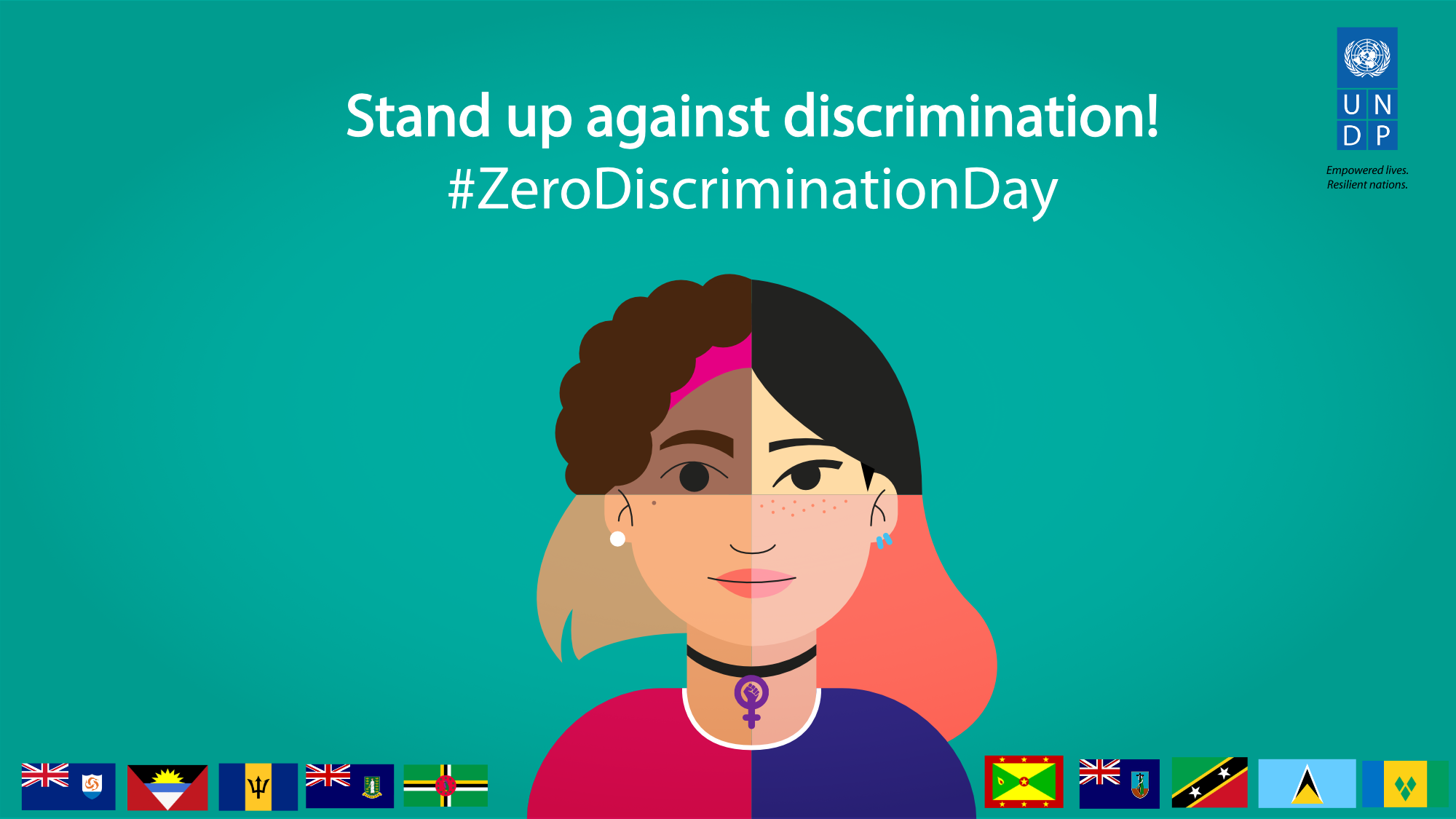The Fight Against Discrimination

Given the common and collective history of Barbados and the Eastern Caribbean, the strides we have made in combatting discrimination and ridding our societies of the inequities that defined the colonial and immediate post-colonial periods have been nothing short of inspiring.
The strides have been many. Constitutions that prohibit discrimination based on race, sex and social origin, thus giving citizens protection from unjust state action. Employment legislation that prohibits discrimination for employees with disabilities in Barbados and Saint Lucia, Family Law legislation that has banished the notion of the illegitimacy that in years past served to disinherit citizens and legitimize unequal treatment between children. An increase of women actively participating in politics.
Despite our strides, there is still ground to be made, particularly for women and girls. As we mark this Zero Discrimination Day, the gender pay gap in the Caribbean remains alarmingly disparate, The 2019 Human Development Report places annual gross income for women at US $13,686 while men earn US $18,292, a fact that should concern us all especially because women outnumber men as graduates of institutions of higher learning. Holistically addressing discrimination of women and girls, requires that we must better grapple with the realities of intersectional identities, and find space in our legislation, policy, and practice for citizens both woman and disabled, or woman and LGBTI, and any combination thereof including vulnerably situated girls.
UNDP recognizes that the empowerment and advancement of women and girls are essential to the development of the Eastern Caribbean region through its partnerships with governments and donor agencies and thus has committed to two projects principally focused on gender; namely Spotlight and EnGenDER.
The Spotlight Initiative funded by the European Union and led by UN Women with the participation of UNDP, PAHO, UNICEF and UNFPA is designed to focus attention, coordinate human effort, and strategically apply resources to the implementation of a well-conceived comprehensive national programme to contribute to the end of family violence and all forms of violence against women and girls in Grenada, Carriacou and Petite Martinique.
EnGenDER is a 15-million USD project funded by Global Affairs Canada (GAC) and Department for International Development (DFID); appropriately titled Enabling Gender-Responsive Disaster Recovery, Climate and Environmental Resilience in the Caribbean (EnGenDER). The ultimate outcome of the EnGenDER Project is to support improved climate resilience for key vulnerable populations and future generations in the Caribbean.
This task of improving the prospects for women and girls is difficult but one for which states like Barbados and those in the Eastern Caribbean are well equipped, we are diverse and have used collective genius and extraordinary will to overcome and improve on our realities. We must harness the advantage of our diversity even though the work is complicated, because our societies deserve more.”
Women and girls deserve comprehensive and enforceable domestic violence legislation. They deserve to be fully in charge of their sexual and reproductive health and thus we need to remedy the discordance between the age of consent and age at which they can independently procure medical services in the countries where that exists, we need to enact anti-discrimination legislation which ensures that women are not unjustly kept out of leadership and their professional ascent is not hindered by a glass ceiling.
Even though much remains to be done, on this day it is imperative that we celebrate women and girls who both privately and publicly work and raise their voices daily, sometimes at much personal sacrifice so that there will come a day when the region may achieve Zero Discrimination. However, the task is all of ours to join in advancing equality, equity and ensuring Sustainable Development for us all.

 Locations
Locations